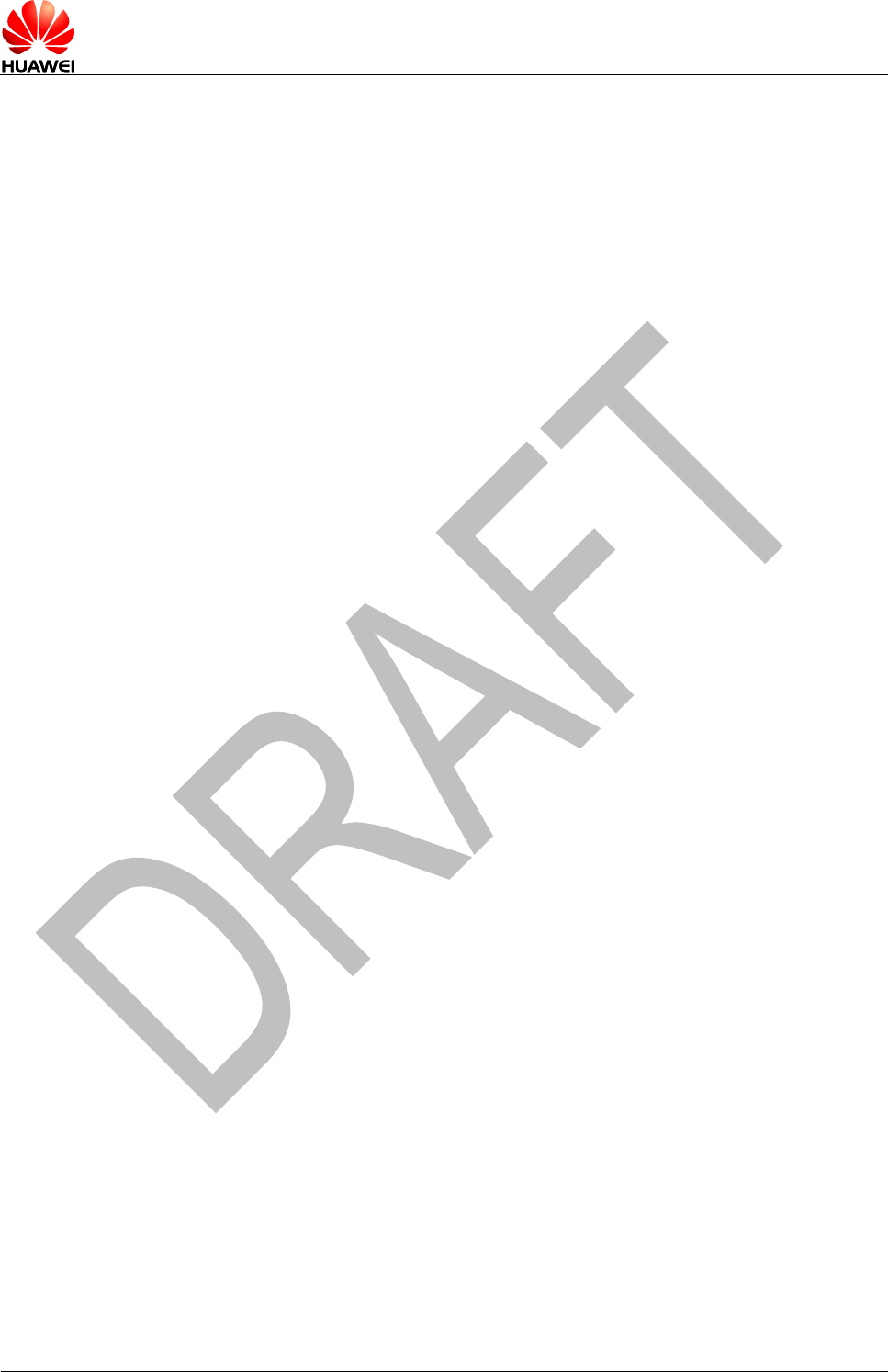
HUAWEI MC509 CDMA LGA Module
Hardware Guide
Certifications
Issue 01 (2011-04-08)
Huawei Proprietary and Confidential
Copyright © Huawei Technologies Co., Ltd.
74
system approved by all members to ensure that the terminals meet network
deployment requirements. All GCF members approve the terminals if the terminals
are certified by the GCF. The GCF certifies both test cases and test systems. The
GCF certification originates in Europe and now is accepted by mainstream operators
in both Europe and Asia.
The GCF certification is a DOC of equipment manufacturers. Equipment
manufacturers only need to perform the test items defined by the GCF and then
submit a DOC on the GCF website. All GCF members can view the desired DOC on
the GCF website.
The test system defined by the GCF requires thorough conformance tests of
terminals. The test system consists of indoor and outdoor tests.
Outdoor tests mean field testing of terminals in actual networks. Outdoor tests
are often performed in the networks of large European operators.
Indoor tests include protocol conformance testing and application conformance
testing.
− Protocol conformance testing aims to test terminals' conformance with 3GPP
communication protocols, including GSM and WCDMA protocols.
− Application conformance testing aims to test terminals' conformance with
widely used applications such as browsers, SUPL, MMS, and VT.
The OMA and the IMTC specify operation and interaction specifications of
such upper-layer applications. Application conformance testing is based on
the test standards defined by the OMA and the IMTC.
Terminals are not required to pass all the GCF tests. GCF tests are classified into the
following types:
Mandatory tests: Mandatory tests mean the tests that the terminals supporting
the GSM or WCDMA system must pass. Mandatory tests cover the capabilities
that a terminal must have when it supports communications in the relevant
system (GSM or WCDMA).
Optional tests: Optional tests refer to the tests that the terminals supporting a
feature specified in the 3GPP protocol or the OMA or IMTC protocols must pass.
If a manufacturer is unwilling to perform such tests for its terminals, the
manufacturer should declare that the terminals do not support the related
features and not claim that the terminals support the related features when
releasing the terminals to the market.
Unnecessary tests: The GCF does not require the terminals to pass all the tests
specified by the 3GPP, OMA, or IMTC. The tests that are not relevant need not
to be performed.
As the GCF test items need to be updated frequently to meet the requirements of
new communication technologies, the GCF updates the GCF-CC version
continuously. Usually the number of test items increases every time a new GCF-CC
version is released and terminals are required to pass an increasingly large number
of tests.
The current GCF-CC version is 3.35. The GCF updates the GCF-CC version every
two or three months. The previous version is rendered obsolete 110 days after a new
version is released. All terminal manufacturers need to pay attention to the 110-day
rule because additional test items are required after the previous version becomes
obsolete. All GCF members can view the latest GCF-CC version, the currently
available version, and the validity period published on the GCF website.


















